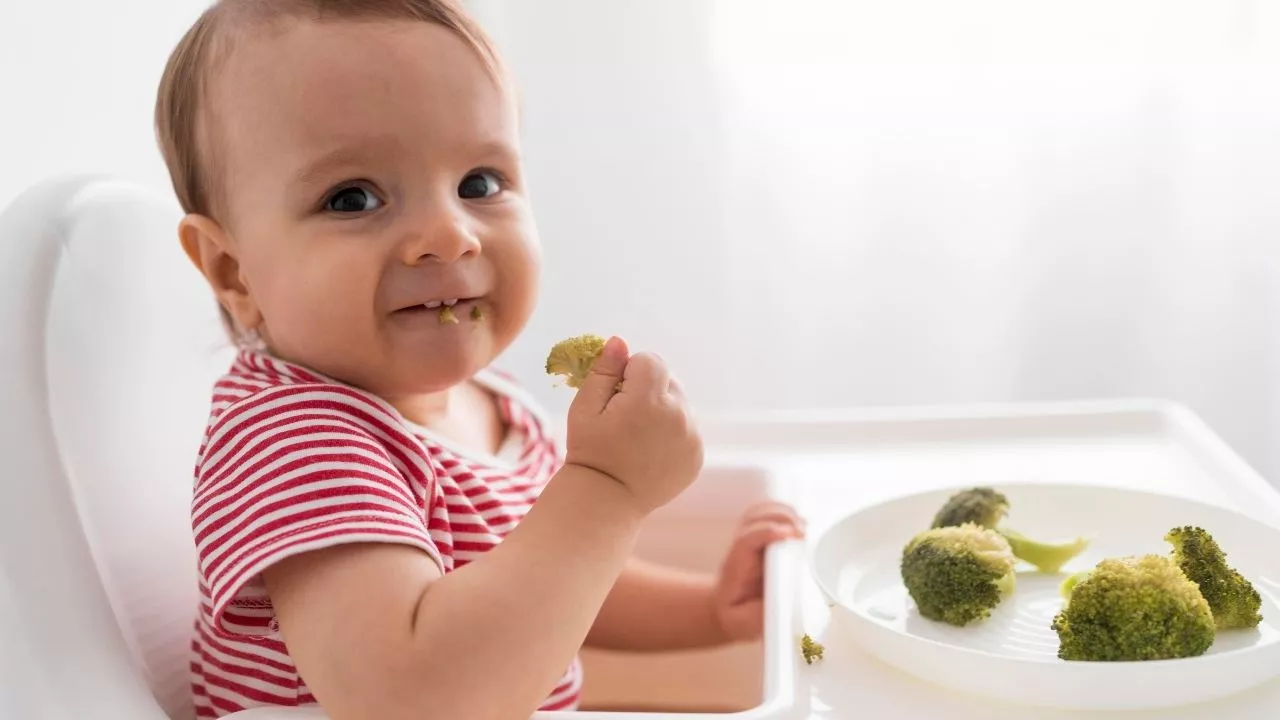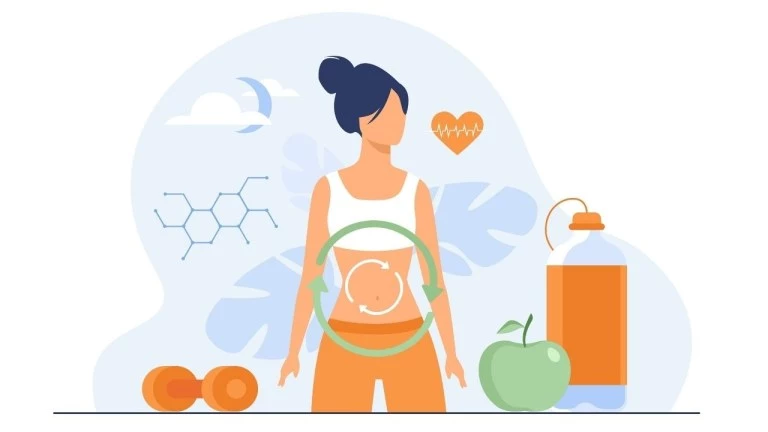What Causes Food Allergies in Babies?
Exclusive breastfeeding during the first six months is recommended for optimal nutrition of babies. After six months, the baby’s energy and nutrients demand increases, so it is the right time to introduce your baby to the first solid food.
Feeding food in a tiny mouth and introducing your baby to all the tastes, textures, flavor is an exciting and fun giving experiment. But before feeding, you should know the food allergies in babies. Not all babies are prone to an allergic reaction, but you should be careful as a parent.
Let us know about food allergies in babies in this blog.
Food Allergy Vs Food Intolerance

People get confused between food allergy and food intolerance because both have similar signs and symptoms. But they differ from each other.
Food Allergy is an unpleasant or dangerous immune system reaction after a certain food is eaten.
Food Intolerance is difficulty in digestion of certain foods or that particular food might irritate the digestive system.
Food allergy symptoms are mild to severe or life-threatening while food intolerance symptoms are generally less serious and often related to digestive issues.
In food allergy, your immune system overreacts and produces antibodies called immunoglobin (IgE), which travel to cells that release chemicals. This is called an allergic reaction.
In food intolerance, your body is unable to break down the food properly due to the absence of particular enzymes (Lactose intolerance), sensitivity to food additives, food toxicity, and hereditary.
What foods most often cause food allergies in babies?
The US Center for Disease Control and Prevention (CDC), gives the list of certain foods which are responsible for allergic reactions in babies:
- Milk (from any animal source especially Cow milk)
- Eggs
- Foods that contain gluten (including Wheat, Barley, and Rye)
- Nuts like walnut, cashew nuts, and peanuts, etc
- Soya
- Shellfish
- Fish
- Sesame
Food Allergy in babies – Symptoms
Mild to severe symptoms can occur in food allergic reactions in babies.
Mild symptoms include-
- Hives or red to pink rashes on the skin
- Itchiness or tingling of the throat or mouth
- Swelling on face, lips, and eyes and sometimes fingers and toes
- Eczema
- Abdominal pain
- Vomiting and diarrhea
- Congestion, sneezing, or runny nose
- Dry cough
Severe symptoms- The state of severe symptoms is called Anaphylaxis or anaphylactic shock. It is a life-threatening emergency and the symptoms are:
- Shortness of breath, coughing, wheezing in the chest
- Trouble in breathing and swallowing
- Increase in heartbeats and sudden drop in blood pressure
- Dizziness and partial unconsciousness
- Blood in stool
Diagnosing Food Allergies in Babies
A doctor or healthcare professional does a food allergy diagnosis by studying the symptoms and the baby’s medical history. The doctor might perform the allergy tests separately or in combination:
Blood Test: It is done to measure antibodies present in the blood. This test may be used when a skin test cannot be done or if there is any doubt about a food allergy after a skin test.
It is a very costly method and takes a long time to result.
Skin prick test: It is the most common allergy test. In this method, a small amount of diluted allergen is put on the skin. That area may be pricked or scratched, if any small raised bump like a mosquito bite appears on the skin after 15 minutes, it means the baby is allergic to the specific allergen.
This is a quick method. This testing may not be done if your baby recently has a severe reaction or severe eczema.
Food challenge test: In this test, a very small amount of possible allergen is orally given to the baby under the supervision of a doctor and other medical staff. There is a risk of anaphylaxis so it is conducted by a medical specialist in a setting where anaphylaxis can be treated safely and easily.
How is Food Allergy in Babies treated?
There is no definite treatment for food allergy. Only an allergist can tell you the right treatment with the help of the symptoms and diet history.
Antihistamine medication: A mild allergic symptom can be treated with an oral antihistamine and albuterol inhaler (in case of mild wheezing).
Severe symptoms can be treated with an epinephrine auto-injector (e.g., Epi-pen).
Changes in diet: Avoid foods that cause the allergy. After finding foods which creates allergy by doctors, avoid these foods and other similar foods in that food group.
Always read the labels of packaged food or processed food carefully for allergen warnings before being introduced into the baby’s diet.
Many allergies are short-term or food may be tolerated when they grow up. So, in some cases, the doctor may be given certain foods again after few months to check if the baby has outgrown the allergy.
Note: Always consult with a doctor for medicines and diet changes.
Key tips for introducing food allergens to babies:
- Introduce allergen food to your baby around 6 months of age, when your baby is ready to eat solid foods.
- Too early (before 4months) as well as the delayed introduction of allergen food may increase the risk your child develops an allergy.
- Introduce allergen food one at a time, wait 2 days before introducing another allergen. This way parents can identify the food which causes an allergic reaction to the baby. Repeat the food over 3 days and monitor the symptoms.
- If the baby tolerates a common allergic food, offer it few times a week to maintain tolerance.
- Feed the allergen or non-allergen foods in soft, smooth, puree form to avoid choking hazards.
- To do an allergen test at home, first, rub a small portion of allergic food on your baby’s lips to observe any signs of reaction. It can take minutes to an hour for reaction. If all is well, mix a small portion of allergen food in other food purees. Gradually increase the amount of allergen food if you don’t observe any symptoms.
- Continue feeding of non-allergenic foods at the same time. No need to wait in the period of introducing allergic food.
- Continue breastfeeding for up to 2 years
- Offer allergen food to the baby in the morning, so you will get time to monitor the reaction throughout the day.
Note: If you have a family history of food allergies or the baby has a history of atopy, including eczema, please consult with allergy expert medical professionals before introducing allergen food to the baby.
What to do if you found food allergies in babies?
Immediately stop feeding allergic food to the baby. Call the doctor and take advice.
Monitor your baby for signs. Mild to moderate reactions can rapidly develop into anaphylaxis. Consult with a doctor for further treatment.
If there is a severe allergic reaction, lay baby flat in your arms. Don’t hold upright, and don’t let them stand or walk. Sit them up, if there is breathing difficulty. If the baby is vomiting or fainted, lay them on the side.
Immediately administer epinephrine with an auto-injector (Epi-pen) if available.
For any symptoms, take medical advice and call an ambulance if required.
Read More:
FAQ:
Q. When does food allergy develop?
A. Food allergy can develop at any age but is commonly found in the age group of lesser than five years.
Q. Food allergy can be outgrown?
A. Most of the babies allergic to cow’s milk, wheat, soya, or egg will outgrow. Allergic reactions to peanut, tree nuts, sesame, and seafood persist in approximately 75% of children.
Q. Are food allergies are inherited in babies?
A. Babies born of parents with allergic tendencies are more prone to food allergies.
Q. Should I avoid allergic foods during pregnancy to protect my baby?
A. No. There is no benefit to avoiding allergic food during pregnancy to protect the baby. Avoid only if you are allergic to it.
References:
Food allergies in schools; Centers for Disease Control and Prevention
https://www.fda.gov/food/food-labeling-nutrition/food-allergies
https://www.webmd.com/parenting/baby/introducing-new-foods#1
https://www.mayoclinic.org/diseases-conditions/food-allergy/symptoms-causes/syc-20355095






